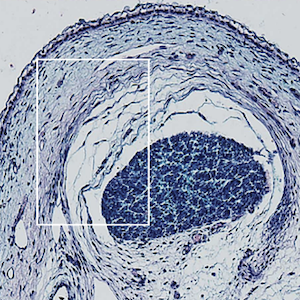Original Articles
Vol. 60 No. 1 (2008)
Fibronectin gene polymorphisms and clinical manifestations of mixed cryoglobulinemic syndrome: increased risk of lymphoma associated to MspI DD and HaeIII AA genotypes
Publisher's note
All claims expressed in this article are solely those of the authors and do not necessarily represent those of their affiliated organizations, or those of the publisher, the editors and the reviewers. Any product that may be evaluated in this article or claim that may be made by its manufacturer is not guaranteed or endorsed by the publisher.
All claims expressed in this article are solely those of the authors and do not necessarily represent those of their affiliated organizations, or those of the publisher, the editors and the reviewers. Any product that may be evaluated in this article or claim that may be made by its manufacturer is not guaranteed or endorsed by the publisher.
1605
Views
671
Downloads











